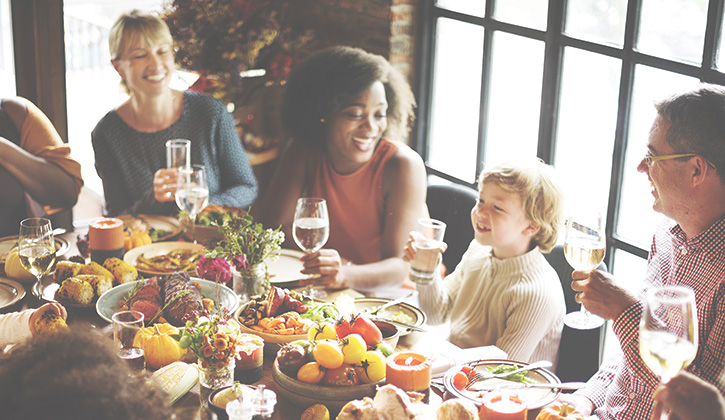
Thanksgiving is almost here. Are you planning to get together with friends or family? Will you eat a big meal? Will you eat tortoises and wild cattle?
If your answer to that last question is no, you won’t be like early humans. But just sharing a big cooked meal will link you to our distant past.
Food for Thought
The act of cooking or eating at a feast is older than our species. A feast is a big meal that is made to bring a group of people together. Our species are the line of humans known as Homo sapiens.
There were other early humans before Homo sapiens. They were the first to use fire to cook food. Some experts believe that happened almost 2 million years ago.
Eating cooked food helped humans evolve. Evolution is the process of change over time.
“The story of human evolution [is] the story of what we eat,” said expert Matt Sponheimer.
Very Old Leftovers
Last year, experts reported that they had found the earliest proof of cooking. That proof was leftovers from a roasted carp dinner. Carp is a kind of fish.
The feast happened next to a very old lake in Israel. A group of early humans lived there. They belonged to the Homo erectus species. Those early humans walked standing up. The species died out later.
Experts dug in the mud near the lake for years. They found bones from fish. They found a lot of carp teeth. The bones and teeth were grouped in certain places. Those places also showed signs of fire.
Tests showed that the teeth had been heated up. They never got super-hot, though. So they weren’t just thrown onto a fire. Someone cooked the fish slowly on low heat.
Expert Irit Zohar and her team wrote about the find. The cooked leftovers were 780,000 years old. That was a very long time ago. But experts think humans started cooking even earlier than that.
“I am sure that in the near future an earlier case will be reported,” team member Israel Hershkovitz said.
Why Humans Cook and Feast
Cooking makes it easier for the body to break down and use key nutrients in food. That gave early humans more energy. That helped them power their larger brains.
Sharing group meals helped humans stay close to each other. Proof of the earliest feast dates back 12,000 years ago to a cave in Israel.
At that feast, humans ate tortoises and wild cattle. Experts found leftovers in the cave. The feast was probably held to honor an important woman who died. She was buried in the cave.
Shared feasts helped early humans live in one place, form friendships, share news, and fix problems. In other words, the first feasts weren’t that different from our modern Thanksgiving dinners.
Vocabulary
- tortoises n. turtles that live on land
- cattle n. plural form of cow
- leftovers n. food that has not been eaten in a meal and is often eaten with another meal
- nutrients n. substances that plants, animals, and people need to live and grow












Leave a comment
Load more